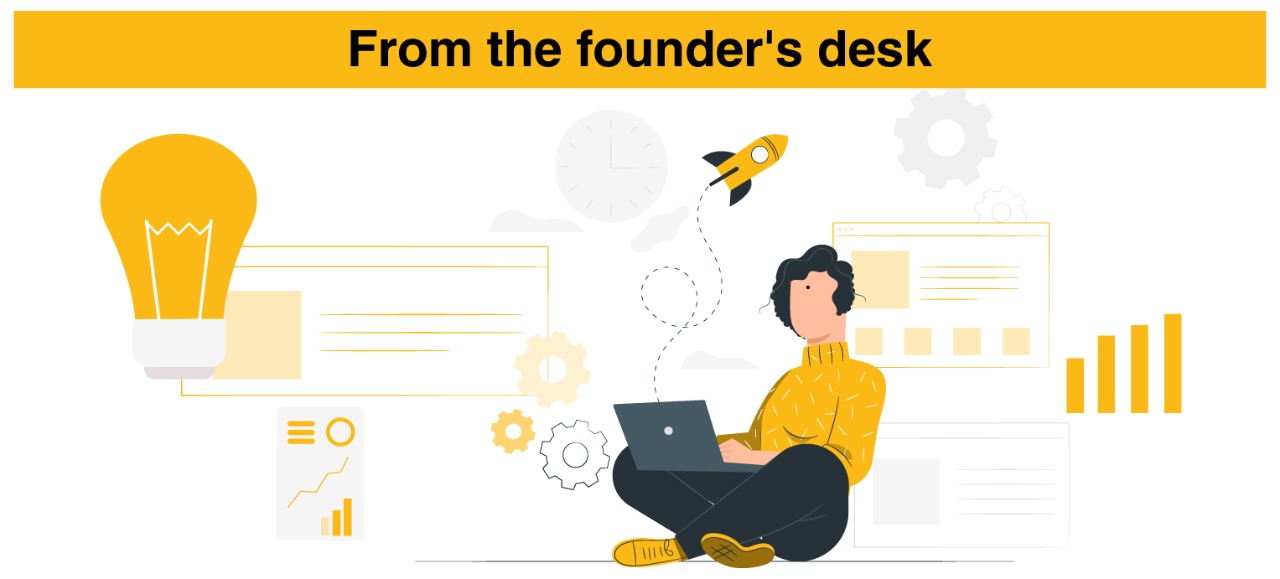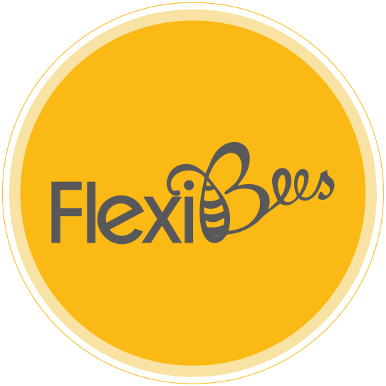
Oct 11
Founder's Desk
0 Homo Erectus stood up a couple of millions years ago, early sapiens started telling stories 70000 years ago, and an early version of the plow appeared 10000 years back. But it was only when we started producing 10-step listicles on Twitter on “How to be more Productive” that we truly reached the pinnacle of evolution.
Nothing against productivity. Or lists. Or you, if you are the type who likes to give Productivity gyaan and if you have deigned this article worthy of a read (it may not be the most productive use of your time).
But I have to say that as a person who is a primary care-giver (or to do away with redundancies, a woman) and also has a demanding career, I take your list and grind it under the imaginary heels of my very real red boots.
Yes, even if you are Elon himself. Unless new information comes to light that apart from being a Mars enthusiast, Tesla person and Twitter main man, he is also a stand-up, sit-down and hands-on parent to his multitudinous progeny.
Now that I have used up all my jokes, it’s time to be serious.
And in all seriousness I say that this world needs a new version of productivity for us women (or folks who are caregivers, whatever the gender) which doesn’t start with “wake up and stare into space for 30 minutes to marshal your thoughts, harness your chakras, vaccinate against inner demons” and so on and so forth.
(Oh this is NOT how they talk? I wouldn’t know. Remember, list to heel to dust?)
Okay now that the jokes are finally over, let me get down to it.
Yes.
For two reasons, firstly that there are wholly tangible benefits to having role models and folks out there who are creating their own models of productivity that involve a kid or two, an elderly parent, that is, management of people, personalities and tempers apart from your own. As increasingly more safe spaces for women spring up, one of the most common questions I see being asked is how to manage your work while being a hands-on parent. And when I say “common”, I don’t mean mundane; these questions are imbued with huge anxiety, and are near-existential in many cases. So, it needs representation and community learning.
Secondly, and the reason it needs to come outside of these women-only spaces is that in this day and age when mental health awareness is a matter of pressing importance, we cannot underestimate the impact that the constant juggling has on the mental health of caregivers. There are tools galore to manage your calendars and micromanage your day, but do we understand the RESILIENCE it takes to go from being chief problem-solver to a tantrum-y toddler to super hustler for your start-up? Do we know the EXHAUSTION that caregivers experience having to use every play in their trick or treat books to tackle an unusually scheduled meeting or a sudden hole in their carefully crafted care ecosystems?
And as I speak I am acutely aware of my own inability to represent caregivers of the elderly, the terminally ill or the specially abled.
I primarily speak to and for young mothers, as that is core to my experience. And I assume they have the financial means to have a care ecosystem in place. This care infrastructure is vital to our being functional in our workplaces, however, let me make it clear that the presence of a nanny and/or school does not lessen the mental, emotional and at times, physical pressures of managing two full-time jobs.
Many of us have been pandemic caregivers too, a solid year or two of our lives spent without any external help, but thankfully during which time families and partners stepped up (and hopefully continued to even beyond). Now with a physical school my kid goes to, a part-time nanny and the luxury of being able to work from home most days, I still believe myself to be fundamentally changed as a person because of those years, and more broadly because of the incessant planning that it takes to be a caregiver while having a job.
Dale Carnegie apparently said, “An hour of planning can save you 10 hours of doing.”
How pretty. It conjures up images of people being super efficient, conquering the world and leaving the office at 6 pm (8 if they are the ambitious types). I call this peace-time planning.
Now let’s get to the other kind of planning, the weekly, biweekly, daily, hourly, and sometimes minute-wise planning a caregiver does. It’s done on a war-footing, and its absence is fatal. I plan for my kid’s 4 o’ clock milk plus videos time; while his nanny gets the milk, I ensure I cast the videos ahead of time, say, before a meeting that’s to begin at 4; lest all of our eardrums get punctured by the unceasing knuckle-banging on my door.
The point is, I plan like my life depends on it. And it probably does, life as I know it. I plan in broad strokes and like a pointillist artist depicting ants marching off to work.
I have a to-do for the day, split by morning, afternoon and evening. I have a list of actions for the day and the week. I have a set of chores for after-work and a few for the weekends. I plan for calls to make while I’m waiting for my kid’s school bus to arrive and for emails to send while watching him play football.
If you aren’t a mom, you might think, “she crazy”, and I wouldn’t disagree. I do balance it out however by free-wheeling all of the other times, by putting zero pressure on myself for things I don’t prioritize and for never berating myself for not being more or different. My mental space is healthy for the most part.
But if I am to make it work the way I have to make it work, there ain’t another way.
Which brings me to my second point - Delegate.
Now I set a poor example in the above anecdote. What I should really be doing in that situation is to give the nanny the Wifi password, train her to cast You-tube videos, take a quick lesson on which videos are acceptable and which not, and then leave the pair to it. I promise I will do it, pronto after I finish writing this article.
You get the drift. I have a trifecta of helpers, cleaner, cook and nanny. The nanny spends a not-insignificant amount of hours with the kid and he, in turn, loves her. Not a bad deal.
Having said that, I cannot in all honesty exhort anyone to delegate it all. I have continually surprised myself by having firm-ish ideas of the kind of parent I want to be. I like to take him to his football classes and watch him play and I do the school bus pick-up and drop myself. I have my boundaries and I have my reasons.
But for everything else, get help.
I have done meetings by the kid's side while he slept, in the same room while he watched videos or painted himself red and blue, in a coffee shop as he ran circles around his then-nanny, through terrific tantrums and even through fecal matter explosions.
And in all these cases when things have gone south, I have taken a pause, dealt with it, and returned to the agenda at hand. They are excitable little human, you are doing more than your best, and that’s that.
Many of the examples above are from the pandemic, when we didn’t have care infrastructure for the kid. Now of course, he goes to school for half the day and I have a nanny for the other half. However I recently enrolled him into an on-demand daycare that I am comfortable with for those times when I need to head out for physical meetings during his non-school hours.
Oh and there have been occasions in our most recent phase of nanny-hunting* when my cook or cleaning lady has looked after him while I have been on unavoidable calls. My strategy is to surround myself with decent folks who can come to my aid when I need them, and I sacrifice major and minor housekeeping and culinary failings at its altar.
A care ecosystem is your buttress and your safety net. And even with it, life is going to be a dance; but it is absolutely essential in my view and can open up hours and opportunities in your calendar. OVER-INVEST.
With the pandemic having unleashed forces of remote and hybrid, organizations that look askance at a parent needing to go home early or working from home when the child is ill, deserve our contempt. Flexibility at the workplace is the most powerful arrow in your quiver, chase it, fight for it.
**
Oh and of course we work for the day when caregivers will not by default be women. When roles are ungendered, girls grow up to expect more, and more importantly boys grow up to be equal partners.
When workplaces become more care-giver friendly, when organizations see people as whole beings whose productivity is not a direct function of time spent at work.
As for me, primarily due to the realities of our respective workplaces, my husband is less hands-on during the day; but is more present after-work and has certain complementary skills to mine. That’s when I delegate to him. And our tiny boat stays afloat.
**
*no nannies were harmed during this process
